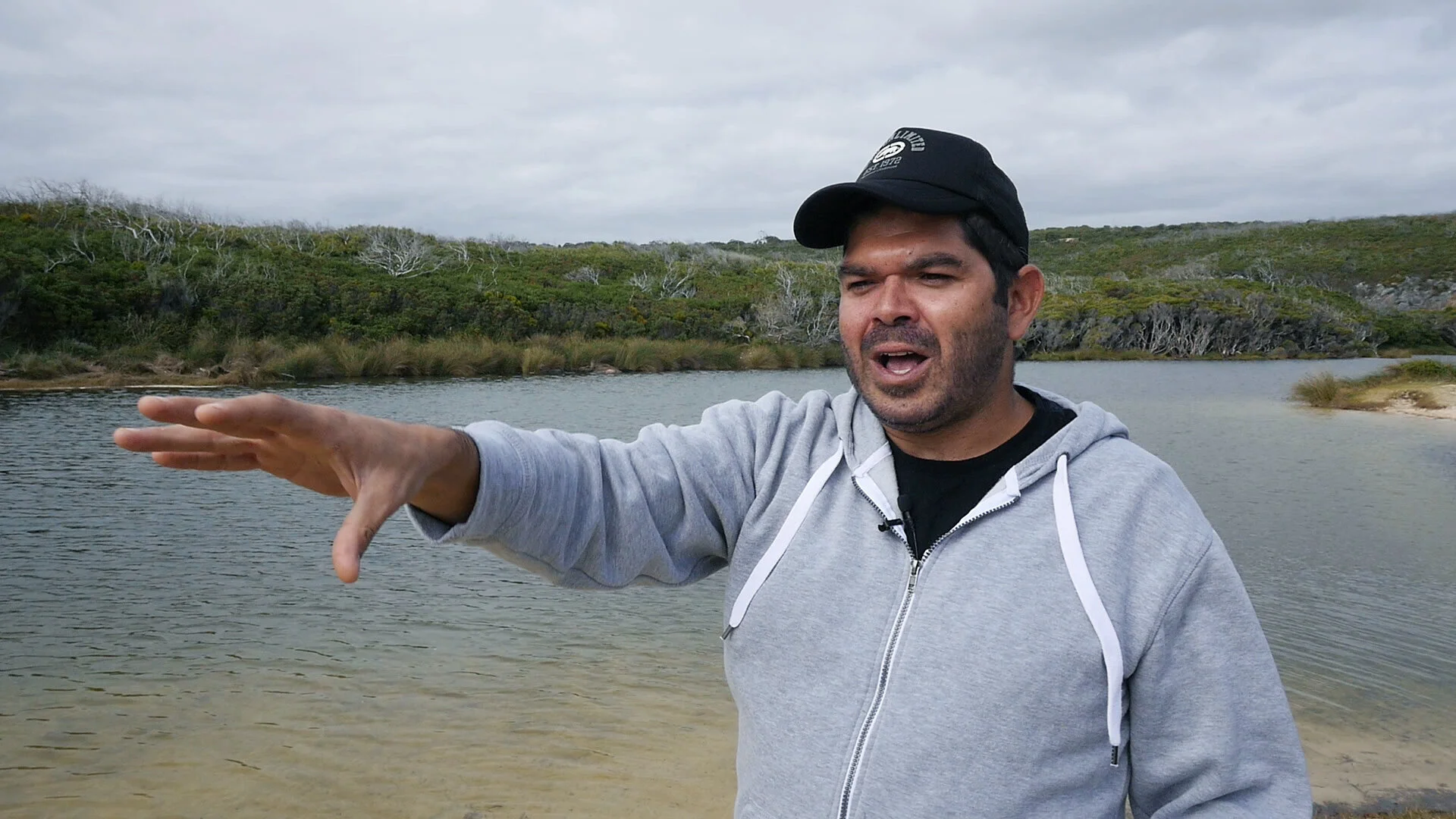Zac Webb: preserving country and culture
Zac Webb is a Wadandi-Pibulmun cultural custodian from the Noongar nation, an Aboriginal region spanning southwestern Australia along the Great Southern Reef near Margaret River, and one of the last speakers of their native language. As custodians of their country, the Noongar people have a continuous cultural, physical and spiritual relationship with the land and sea. Having been taught by his family who have continuously lived on Wadandi Boodja for generations, he has a wealth of knowledge of his people’s culture.
What is a totem?
Speaking poetically about his people’s symbiotic relationship with land and sea, Webb gave us a first-hand explanation of the concept of a totem, a natural object, plant or animal that is inherited by members of an Aboriginal clan and family as their spiritual emblem. The interconnectedness of man and nature is a concept embedded deep into Aboriginal history and cosmogony. Webb explains that once you have a totem, you care for it, you learn about it and you do what you can to protect it. You become a steward of your totem, which in turn upholds the country’s (both land and sea) lore, and it will do the same for the people.
Protecting country
Zac’s father, Wayne Webb, has been an Undalup cultural custodian for the past thirty years and is known for mapping out all of the places of cultural significance, including more than 120 heritage sites, in their region. Webb and his family work among their community to raise awareness of the importance of protecting the country, and the importance of living a sustainable lifestyle. “You work with the country and the practices that the country needs not what is being imposed upon it. That’s how we’ve got to start looking at the country, with a holistic approach. Not separating our house from the backyard to nature. We’ve disconnected ourselves too much as people. We put ourselves in boxes … which disconnects us with nature.”
Importance of stewardship
Continuously working as a steward of his land, Webb strives to continue raising awareness of the importance of Aboriginal culture, history and the significance of humans' relationship to nature. As a key message, he implores people to learn about where they are from, their local places and take ownership of them, claiming that you do not have to be indigenous to do so and “if we look after the country, it looks after us.”








